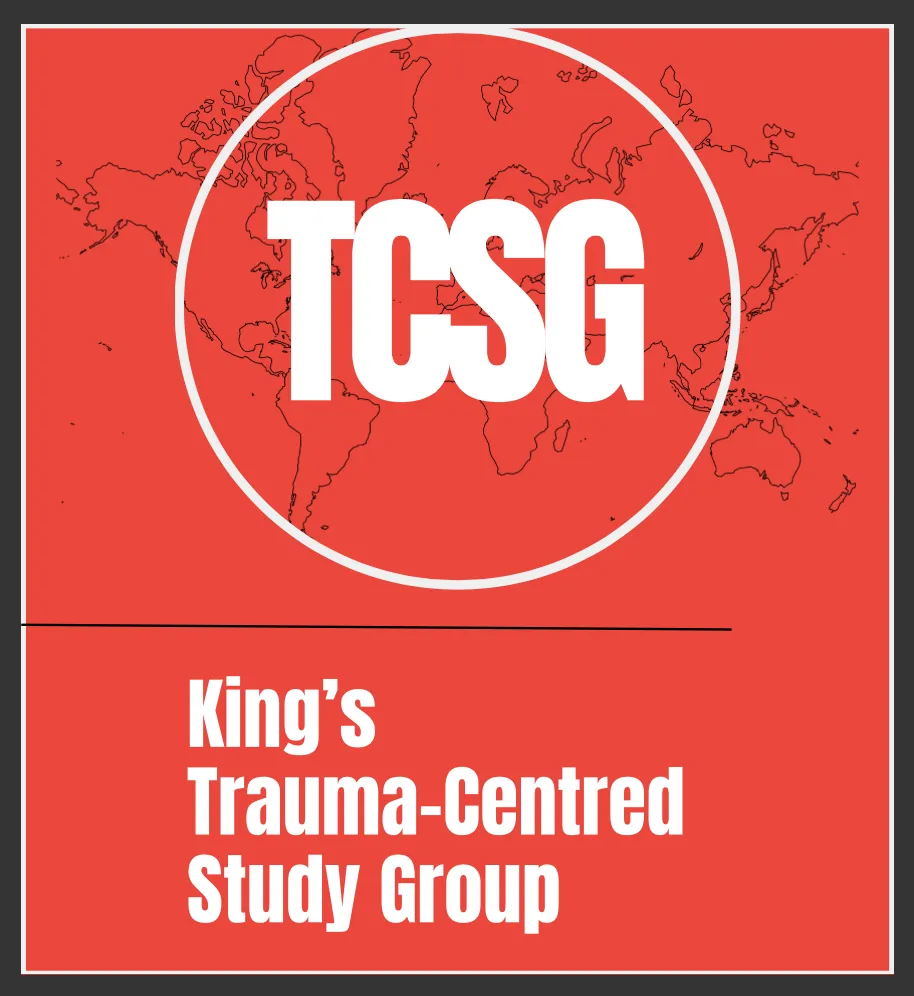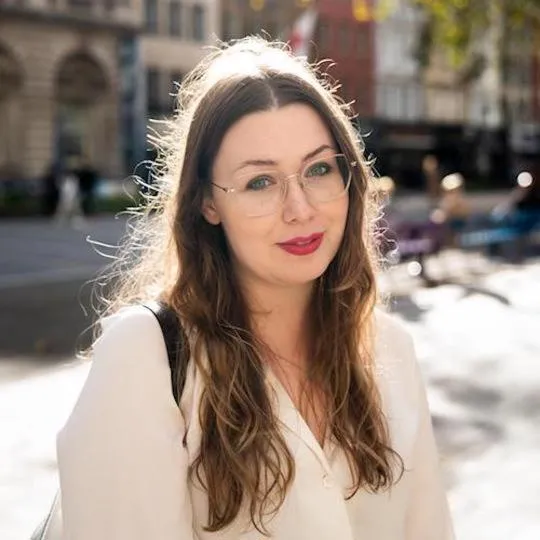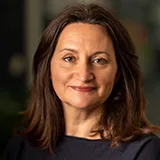The Trauma-Centred Study Group brings together PGRs, ECRs, alumni, and faculty from across King's College London as well as other London-based universities to explore trauma as both a tool of analysis within our research and a tool of self-reflection for ourselves as researchers. We facilitate routine dialogue through discussion-based sessions, workshops, and public lectures and offers a creative space for collaboration and innovative thinking among researchers about the visibility of trauma as a concept, methodology, and informed practice within our research, curricula, and policy-making spheres.
Our Mandate
Trauma has emerged as a defining characteristic of 21st-century life. It leaves an irreversible mark on the lives of those living in war zones, those who have suffered incidents of extremist violence, those who have fought on the frontlines and from behind computer screens, those who subsist in discriminatory institutions and inequitable systems, and those who have survived unspeakable acts of violence. Immersive study on these topics can also take a serious mental and emotional toll on researchers themselves which can lead to symptoms of vicarious trauma, burnout, and PTSD.
The TCSG’s key aims are to:
- Build a robust network of academics, experts, practitioners, and clinicians from across the UK, Europe and North America to advance routine dialogue about trauma-informed research practices and exchange knowledge about approaches to emotionally-demanding and ‘difficult’ research.
- Articulate trauma-related knowledge gaps, questions, and policy issues to foster an ambitious research agenda rooted in collaboration between the humanities, social sciences, and clinical perspectives.
- To enhance the sustainability of work in ‘difficult’ fields by developing toolkits and strategies, publishing new research, and team-specific consulting designed to educate government and industry on effective approaches to employee care.
Making Space for the 'Personal' and the 'Professional'
The TCSG begins from the premise that the boundaries between our 'professional' and 'personal' experiences as researchers are rarely clear cut. The TCSG offers both a platform and a safe space for researchers to share their experiences, perspectives, and concerns about the role of trauma within their respective research journeys. In doing so, this study group fosters and elevates dialogue on an issue studied and experienced by countless researchers working on sensitive and emotionally-demanding topics. We collaborate with various organisations such as the Centre for Anxiety Disorders and Trauma to bring clinical and behavioural science perspectives to our sessions and workshops.
Training & Consulting
The TCSG explores trauma-informed methods and tools from a wide range of perspectives. Working with those who have survived varying degrees of trauma is a delicate dynamic that requires researchers to consider a range of safeguarding mechanisms, from ethics applications to trauma-informed research methods, in order to protect the human subjects involved in our research. Such practices can help researchers create a safe space for interviewing those who have experienced combat, violence, and/or large-scale destruction. Similarly, trauma-informed practices can provide a framework for researchers to make sense of the silences, of what is not being said, and the impact of trauma on one’s memory. The TCSG offers researchers training opportunities, tips, and strategies for strengthening trauma-informed research practices.
Storytelling, Narrative Sovereignty, & Self-Reflection
Immersive study in trauma-related and -effected topics can also take a serious mental and emotional toll on the researchers themselves. In this sense, trauma-informed research approaches are also self-reflective on the challenges that researchers may face when working with trauma survivors and/or archival records of systemic violence, conducting fieldwork in post-conflict zones, or even of being a trauma survivor themselves after experiencing violence, displacement, or discrimination. The TCSG embraces storytelling and narrative sovereignty as mediums and practices for teaching and learning through lived experience.
Get involved - Join our mailing list!

Group leads
Contact us
We welcome pitches for future sessions and events. Please feel free to reach out!
Follow us on LinkedIn!


